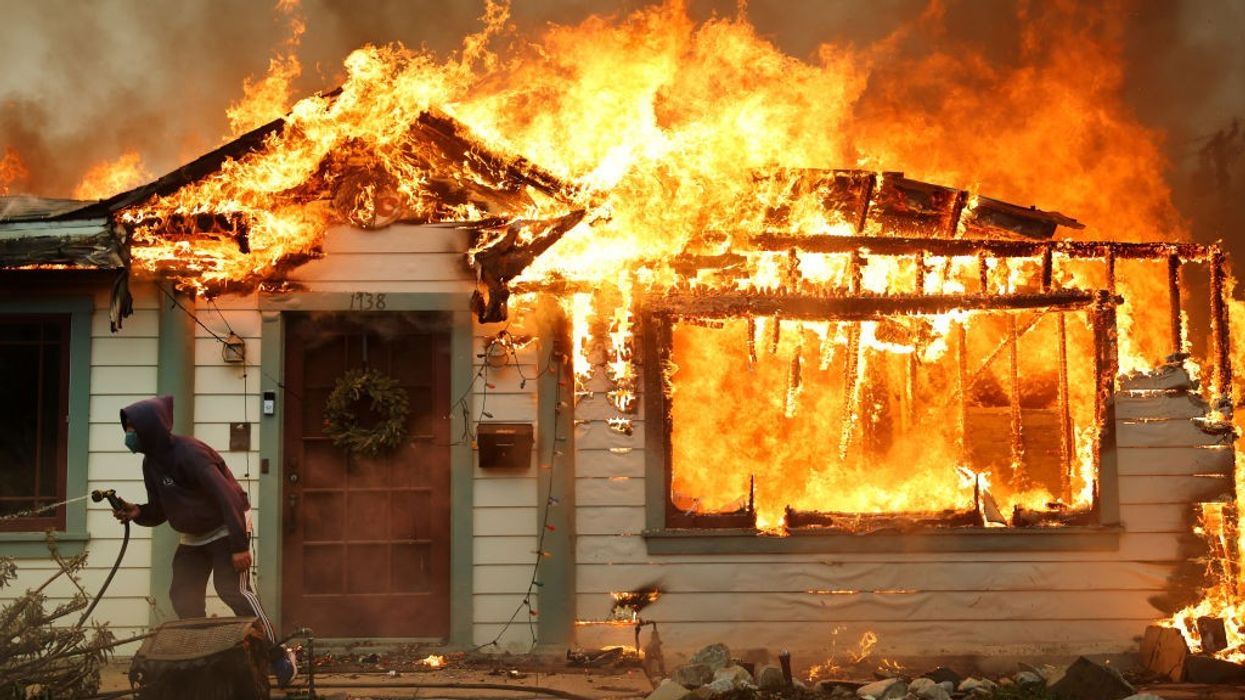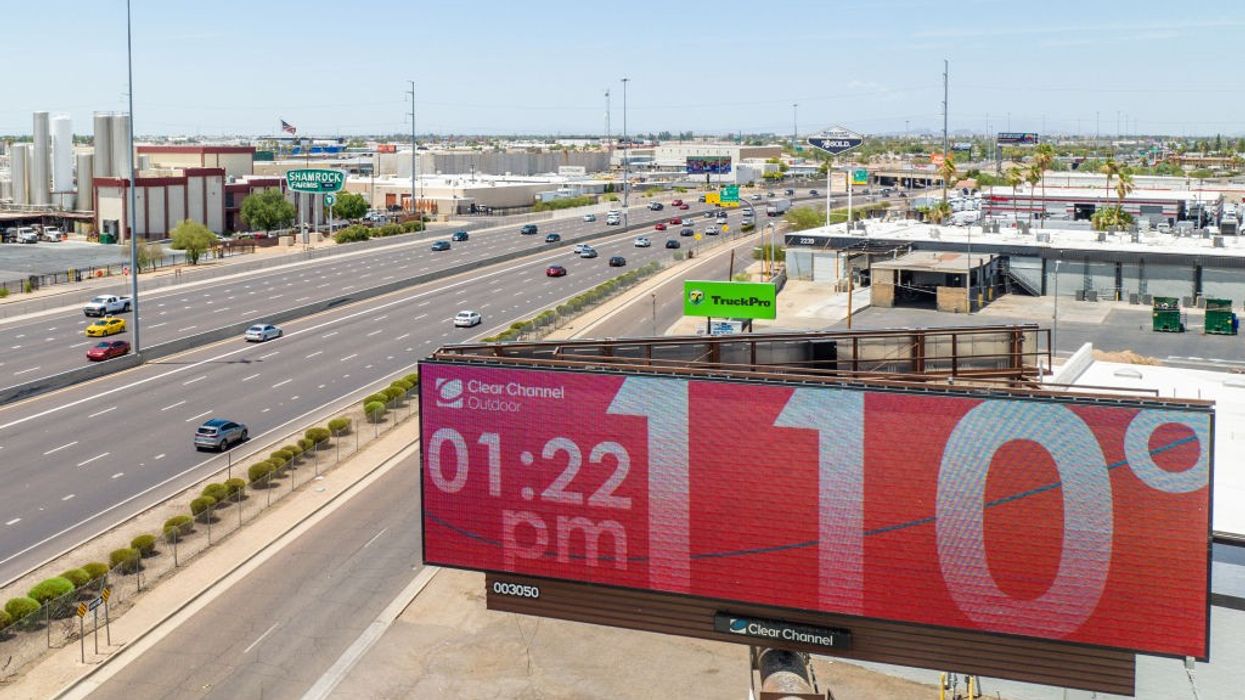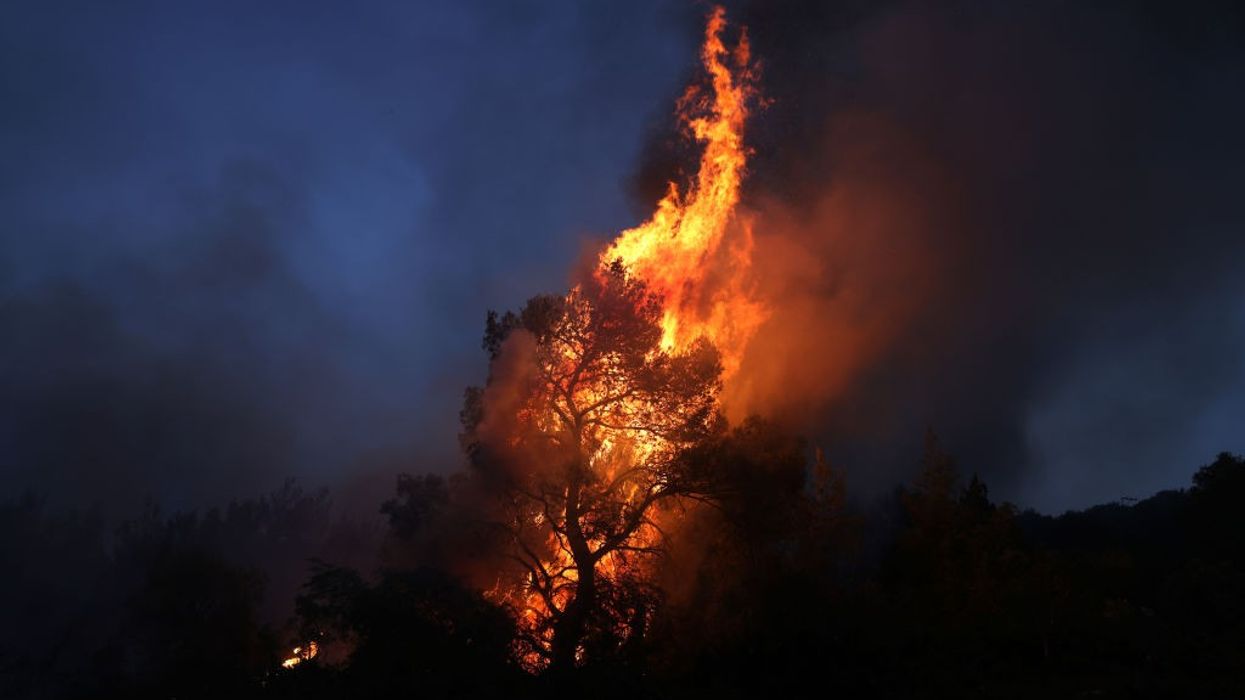The Big Bang, Horrifying LA Fires, and Our Self-Destructive Species
What you can now quite easily see from space is the failure humanity is achieving down here on the ground.
What’s happening right now in Los Angeles is almost too painful to write about. I’ve spent much of the day writing and calling back and forth with friends and colleagues. All report: horror. And since it’s playing out against the most familiar backdrop on earth, the scene of more movies and tv shows than any place on our planet, I think it will be as iconic as Pompeii in our collective imagination. If, you know, people in Pompeii had had smartphones.
So let me pull back a minute and tell a broader story. Though I’ve spent most of my life in the mountains of the East, my early boyhood was in California—my earliest recollections are of our house in Altadena, the neighborhood currently being consumed by the Eaton fire. And the sharpest memories of those are of climbing the fire road to the observatory at Mt. Wilson, which you could see from our backyard. I guess those must have been the first hikes in a lifetime of hikes, the first time to see the world spread out below.
I didn’t know it at the time—I was five—but the telescopes at the observatory at the top of the road were the place where humankind first really saw the universe spread out above. Edwin Hubble, using the 100-inch Hooker telescope, then the largest in the world, made a series of pivotal discoveries in the 1920s. First he showed that the Andromeda nebula was outside our galaxy, taking the universe past the Milky Way. And then, a few years later with Milton Humason, he demonstrated that those distant galaxies were receding from ours—that the universe was expanding. This was the crucial groundwork for the Big Bang theory.
The last time I was up there, you could press a button on a display and the reassuring voice of Hugh Downs would explain that “Hubble’s discoveries were the last great step in the Copernican revolution of thought concerning man’s place in the cosmos. Hubble showed that our galaxy is not the center of the universe. There is no center.”
These discoveries were of a piece with the other great revelations of the 20th century—things like the invention of the solar cell at Bell Labs in 1954, or Jim Hansen’s pathbreaking climate science at NASA’s labs in the 1980s. They were the product of the human instinct for observation, nurtured in America’s unprecedented complex of university, government, and commercial labs. Scripps Oceanographic, MIT, Caltech, JPL, on and on. These were the kind of institutions that took us to the moon, and that indeed just last month shot a spacecraft closer to the sun than ever before.
And it’s this kind of science that lets us understand what’s happening in LA today; the descendants of Hubble and Hansen have continued the kind of painstaking research that make clear the result when a climate-induced drought (it’s only rained 0.16 inches in LA since May) and climate-induced heatwaves (the LA basin had some of its hottest stretches ever this past summer) and perhaps the climate-induced increase in the intensity of Santa Ana winds combine to created a firestorm unlike any other. It’s both simple and complicated: here’s a remarkable paper from Nature explaining how the melt of Arctic sea ice, by affecting the jetstream, is making West Coast fires worse.
In some ways, all this human intelligence is still being put to good use. Sammy Roth has written powerful recent accounts of Los Angeles’s push to build solar farms on all its margins, en route to becoming one of the world’s most renewably powered cities.
But in other ways that legacy of highly developed human intelligence is starting to disappear. It’s not just the polio vaccine (RFK Jr. told reporters yesterday, by the way, that he was “very worried” about his LA mansion). It’s the web of climate science targeted by Project 2025, which envisions an end to federal support even for the web of thermometers that measures our descent into something like hell. That’s because they understand (correctly) that this science is “one of the main drivers of the climate change alarm industry.” As Marc Morano, perhaps the country’s most inedfatigable climate denier, put it on Fox yesterday when asked about climate researchers
You have to cut the funding. You have to cut the program. You have to fire the employees, or at the very least, since it is hard to fire people, reassign them.
And yesterday the incoming president published a particularly memorable rant on his Truth Social platform
Governor Gavin Newscum refused to sign the water restoration declaration put before him that would have allowed millions of gallons of water, from excess rain and snow melt from the North, to flow daily into many parts of California, including the areas that are currently burning in a virtually apocalyptic way. He wanted to protect an essentially worthless fish called a smelt, by giving it less water (it didn’t work!), but didn’t care about the people of California. Now the ultimate price is being paid. I will demand that this incompetent governor allow beautiful, clean, fresh water to FLOW INTO CALIFORNIA! He is the blame for this. On top of it all, no water for fire hydrants, not firefighting planes. A true disaster!
That this is all nonsense should by now be taken for granted. His reference is to some effort half a decade ago to allot yet more water to California’s big corporate farms; there is no river of water that the governor could somehow have diverted to Los Angeles to fight the fires. (And if you look at the videos it’s painfully absurd to imagine that a phalanx of firemen with hoses were going to beat down this maelstrom). Elsewhere on social media MAGA aficonados (and U.S. Senators) have taken turns blaming DEI initiatives, the war in Ukraine, and so on.
The great casualties in California today are people and animals and buildings—homes, synagogues, schools, libraries. The great casualty in the month’s ahead may be the insurance system of the world’s fifth biggest economy, which is going to buckle under the strain of these losses. But the steady loss of intelligence in our nation and our world worries me the most. Even as the stakes grow higher, we’re losing our hard-won ability to understand the world around us.
One of the mysteries of Hubble’s universe is why we haven’t found other intelligent species. One explanation is that most civilizations do themselves in before they can reach out into space.


